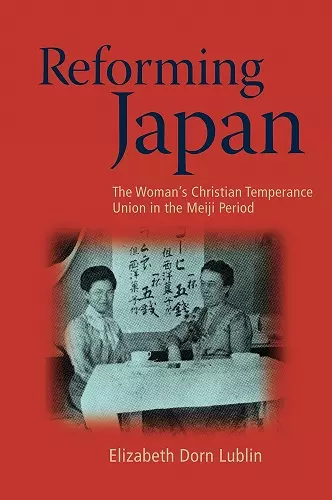Reforming Japan
The Woman’s Christian Temperance Union in the Meiji Period
Format:Paperback
Publisher:University of British Columbia Press
Published:1st Jan '11
Currently unavailable, and unfortunately no date known when it will be back

This fascinating study of Christian moral and social reformerschallenges received notions about women and politics in Meiji Japan.
Challenges received notions about women’s political involvement and engagement with the state in Meiji Japan by exploring the activism of members of the Woman’s Christian Temperance Union.
In 1902 the Woman’s Christian Temperance Union (WCTU)petitioned the Japanese government to abolish the custom of rewardinggood deeds and patriotic service with the bestowal of sake cups.Alcohol production and consumption, its members argued, harmedindividuals, endangered public welfare, and wasted vital resources.
The petition was only one initiative in a wide-ranging program toreform public and private behaviour. Between 1886 and 1912, the WCTUlaunched campaigns to eliminate prostitution, eradicate drinking,spread Christianity, and improve the lives of women. As Elizabeth DornLublin shows, members did not passively accept and propagate governmentpolicy but felt a duty to shape it by defining social problems andinfluencing opinion. Certain their beliefs and reforms were essentialto Japan's advancement, members couched their calls for change inthe rhetorical language of national progress. Ultimately, theWCTU’s activism belies received notions of women’s publicinvolvement and political engagement in Meiji Japan.
The author makes a valuable contribution to Japanese and feminist history...revising the traditional view that women were not involved in politics during this period. Highly recommended. All collections in modern Japanese history and the history of feminism in East Asia
-- M.D. Ericson, University of Maryland University College * ChoiISBN: 9780774818179
Dimensions: unknown
Weight: 440g
264 pages